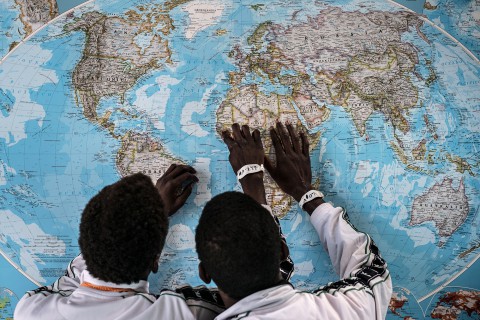African Migration: Root Causes and Regulatory Dynamics (AMIREG)

There are an estimated 1 billion migrants in the world today and demographic imbalances, economic inequality, increased globalization, political instability and climatic changes will all contribute to increasing large-scale migration in the coming decades, disproportionally affecting the Global South.
The AMIREG project is divided in two Work Packages which look respectively at the root causes of migration from Africa and multi-level migration governance in West Africa, particularly in Ghana and Senegal. More specifically, the objectives of Work Package 1, are to provide a deeper understanding of the root causes of migration with a specific focus on the role of financial incentives and constraints; and secondly to identify the effectiveness of, and scope for, regional agreements to ease mobility responses to such geo-localized shocks. There are however, inherent difficulties in predicting the scale and the dispersion of the ensuing migrant flows. First, international migration, traditionally understood to be caused by local differences in certain economic-related factors, is in fact not strictly economic in nature. Second, empirical analyses are typically subject to binding data constraints. Therefore, both economic and non-economic determinants are being explored by exploiting an original suitable micro dataset which has not been largely explored in the academic literature yet.
The second work package of the project, seeks to understand the interest in, and the consequences of, a tighter regulation of mobility in West Africa as opposed to non-regulation. Moreover, AMIREG intends to investigate to what extent the regulatory agenda of intra-African migration is a product of interactions with external actors such as the EU (and its Member States) or the United Nations. As West African governments have only recently begun making efforts to develop clear migration policies, there is a lack of systematic and comparative studies on this issue. Existing studies focus on individual West African countries and are built upon descriptive observations of migration cooperation within ECOWAS. The second work package moves beyond a purely empirical focus and develops a systematic and comparative case study design by focusing on migratory and regulatory issues in Senegal and Ghana. The two countries are relevant from the perspective of intra-African immigration and (international) emigration.
For more information on Work Package 1 please contact Dr. Sara Salomone.
For more information on Work Package 2 please contact Leonie Jegen.
